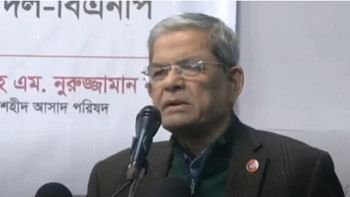Govt will take over burned land: Myanmar minister

Myanmar's government will manage the redevelopment of villages torched during violence in Rakhine state that has sent nearly half a million Rohingya Muslims fleeing to Bangladesh, a minister was reported on Wednesday as saying.
The plan for the redevelopment of areas destroyed by fires, which the government has blamed on Rohingya insurgents, is likely to raise concern about the prospects for the return of the 480,000 refugees, and compound fears of ethnic cleansing.
"According to the law, burnt land becomes government-managed land," Minister for Social Development, Relief and Resettlement Win Myat Aye told a meeting in the Rakhine state capital of Sittwe, the Global New Light of Myanmar newspaper reported.
Win Myat Aye also heads a committee tasked with implementing recommendations on solving Rakhine's long-simmering tensions.
Citing a disaster management law, he said in a meeting with authorities on Tuesday that redevelopment would "be very effective". The law states the government oversees reconstruction in areas damaged in disasters, including conflict.
There was no elaboration on any plan or what access to their old villages any returning Rohingya could expect. The minister was not immediately available for comment.
Human rights groups using satellite images have said that about half of more than 400 Rohingya villages in the north of Rankine state have been burned in the violence.
Refugees arriving in Bangladesh have accused the army and Buddhist vigilantes of mounting a campaign of violence and arson aimed at driving Rohingya out of Myanmar.
Buddhist-majority Myanmar has rejected UN accusations of ethnic cleansing against Rohingya Muslims in response to coordinated attacks by Rohingya insurgents on the security forces on August 25.
The government has reported that about half of Rohingya villages have been abandoned but it blames insurgents of the Arakan Rohingya Salvation Army for the fires and for attacking civilians.
The government says nearly 500 people have been killed since August 25, nearly 400 of them insurgents. It has also rejected accusations of crimes against humanity, levelled this week by Human Rights Watch.
Number Keeps Rising
The violence and the refugee exodus is the biggest crisis the government of Nobel peace laureate Suu Kyi has faced since it came to power last year in a transition from nearly 50 years of military rule.
Myanmar regards the Rohingya as illegal immigrants from Bangladesh and bouts of suppression and strife have flared for decades. Most Rohingya are stateless.
Suu Kyi has faced scathing criticism and calls for her Nobel prize to be withdrawn. She denounced rights violations in an address last week and vowed that abusers would be prosecuted. She also said any refugees verified as coming from Myanmar under a 1992 process agreed with Bangladesh would be allowed back.
But many refugees are gloomy about their chances of going home, saying they fear they lack the paperwork they expect would be demanded to prove they came from Myanmar.
A group of aid organisations said on Tuesday the total number of refugees who had fled to Bangladesh since Aug. 25 had been revised up to 480,000, after 35,000 people were found to have been missed out of the previous tally.
Aid agencies say refugees are still arriving though at a slower rate, and they have a contingency plan for a total of 700,000.
That figure is part of an overall plan to help 1.2 million people, including 200,000 Rohingya who were already in camps in Bangladesh and 300,000 people in "host communities", or people helping refugees who also need aid.


 For all latest news, follow The Daily Star's Google News channel.
For all latest news, follow The Daily Star's Google News channel. 








Comments